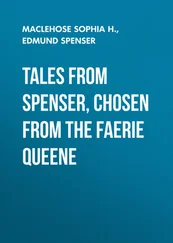Charles Lamb - Tales from Shakespeare
Здесь есть возможность читать онлайн «Charles Lamb - Tales from Shakespeare» — ознакомительный отрывок электронной книги совершенно бесплатно, а после прочтения отрывка купить полную версию. В некоторых случаях можно слушать аудио, скачать через торрент в формате fb2 и присутствует краткое содержание. Жанр: unrecognised, на английском языке. Описание произведения, (предисловие) а так же отзывы посетителей доступны на портале библиотеки ЛибКат.
- Название:Tales from Shakespeare
- Автор:
- Жанр:
- Год:неизвестен
- ISBN:нет данных
- Рейтинг книги:3 / 5. Голосов: 1
-
Избранное:Добавить в избранное
- Отзывы:
-
Ваша оценка:
- 60
- 1
- 2
- 3
- 4
- 5
Tales from Shakespeare: краткое содержание, описание и аннотация
Предлагаем к чтению аннотацию, описание, краткое содержание или предисловие (зависит от того, что написал сам автор книги «Tales from Shakespeare»). Если вы не нашли необходимую информацию о книге — напишите в комментариях, мы постараемся отыскать её.
Tales from Shakespeare — читать онлайн ознакомительный отрывок
Ниже представлен текст книги, разбитый по страницам. Система сохранения места последней прочитанной страницы, позволяет с удобством читать онлайн бесплатно книгу «Tales from Shakespeare», без необходимости каждый раз заново искать на чём Вы остановились. Поставьте закладку, и сможете в любой момент перейти на страницу, на которой закончили чтение.
Интервал:
Закладка:
As You Like It
During the time that France was divided into provinces (or dukedoms as they were called) there reigned in one of these provinces an usurper, who had deposed and banished his elder brother, the lawful duke.
The duke, who was thus driven from his dominions, retired with a few faithful followers to the forest of Arden; and here the good duke lived with his loving friends, who had put themselves into a voluntary exile for his sake, while their land and revenues enriched the false usurper; and custom soon made the life of careless ease they led here more sweet to them than the pomp and uneasy splendour of a courtier's life. Here they lived like the old Robin Hood of England, and to this forest many noble youths daily resorted from the court, and did fleet the time carelessly, as they did who lived in the golden age. In the summer they lay along under the fine shade of the large forest trees, marking the playful sports of the wild deer; and so fond were they of these poor dappled fools, who seemed to be the native inhabitants of the forest, that it grieved them to be forced to kill them to supply themselves with venison for their food. When the cold winds of winter made the duke feel the change of his adverse fortune, he would endure it patiently, and say: 'These chilling winds which blow upon my body are true counsellors; they do not flatter, but represent truly to me my condition; and though they bite sharply, their tooth is nothing like so keen as that of unkindness and ingratitude. I find that howsoever men speak against adversity, yet some sweet uses are to be extracted from it; like the jewel, precious for medicine, which is taken from the head of the venomous and despised toad.' In this manner did the patient duke draw a useful moral from everything that he saw; and by the help of this moralizing turn, in that life of his, remote from public haunts, he could find tongues in trees, books in the running brooks, sermons in stones, and good in everything.
The banished duke had an only daughter, named Rosalind, whom the usurper, duke Frederick, when he banished her father, still retained in his court as a companion for his own daughter Celia. A strict friendship subsisted between these ladies, which the disagreement between their fathers did not in the least interrupt, Celia striving by every kindness in her power to make amends to Rosalind for the injustice of her own father in deposing the father of Rosalind; and whenever the thoughts of her father's banishment, and her own dependence on the false usurper, made Rosalind melancholy, Celia's whole care was to comfort and console her.
One day, when Celia was talking in her usual kind manner to Rosalind, saying: 'I pray you, Rosalind, my sweet cousin, be merry,' a messenger entered from the duke, to tell them that if they wished to see a wrestling match, which was just going to begin, they must come instantly to the court before the palace; and Celia, thinking it would amuse Rosalind, agreed to go and see it.
In those times wrestling, which is only practiced now by country clowns, was a favourite sport even in the courts of princes, and before fair ladies and princesses. To this wrestling match, therefore, Celia and Rosalind went. They found that it was likely to prove a very tragical sight; for a large and powerful man, who had been long practiced in the art of wrestling, and had slain many men in contests of this kind, was just going to wrestle with a very young man, who, from his extreme youth and inexperience in the art, the beholders all thought would certainly be killed.
When the duke saw Celia and Rosalind, he said: 'How now, daughter and niece, are you crept hither to see the wrestling? You will take little delight in it, there is such odds in the men: in pity to this young man, I would wish to persuade him from wrestling. Speak to him, ladies, and see if you can move him.'
The ladies were well pleased to perform this humane office, and first Celia entreated the young stranger that he would desist from the attempt; and then Rosalind spoke so kindly to him, and with such feeling consideration for, the danger he was about to undergo, that instead of being persuaded by her gentle words to forego his purpose, all his thoughts were bent to distinguish himself by his courage in this lovely lady's eyes. He refused the request of Celia and Rosalind in such graceful and modest words, that they felt still more concern for him; he concluded his refusal with saying: 'I am sorry to deny such fair and excellent ladies anything. But let your fair eyes and gentle wishes go with me to my trial, wherein if I be conquered there is one shamed that was never gracious; if I am killed, there is one dead that is willing to die; I shall do my friends no wrong, for I have none to lament me; the world no injury, for in it I have nothing; for I only fill up a place in the world which may be better supplied when I have made it empty.'
And now the wrestling match began. Celia wished the young stranger might not be hurt; but Rosalind felt most for him. The friendless state which he said he was in, and that he wished to die, made Rosalind think that he was like herself, unfortunate; and she pitied him so much, and so deep an interest she took in his danger while he was wrestling, that she might almost be said at that moment to have fallen in love with him.
The kindness shown this unknown youth by these fair and noble ladies gave him courage and strength, so that he performed wonders; and in the end completely conquered his antagonist, who was so much hurt, that for a while he was unable to speak or move.
The duke Frederick was much pleased with the courage and skill shown by this young stranger; and desired to know his name and parentage, meaning to take him under his protection.
The stranger said his name was Orlando, and that he was the youngest son of Sir Roland de Boys.
Sir Rowland de Boys, the father of Orlando, had been dead some years; but when he was living, he had been a true subject and dear friend of the banished duke; therefore, when Frederick heard Orlando was the son of his banished brother's friend, all his liking for this brave young man was changed into displeasure, and he left the place in very ill humour. Hating to hear the very name of any of his brother's friends, and yet still admiring the velour of the youth, he said, as he went out, that he wished Orlando had been the son of any other man.
Rosalind was delighted to hear that her new favourite was the son of her father's old friend; and she said to Celia: 'My father loved Sir Rowland de Boys, and if I had known this young man was his son, I would have added tears to my entreaties before he should have ventured.'
The ladies then went up to him; and seeing him abashed by the sudden displeasure shown by the duke, they spoke kind and encouraging words to him; and Rosalind, when they were going away, turned back to speak some more civil things to the brave young son of her father's old friend; and taking a chain from off her neck, she said: 'Gentleman, wear this for me. I am out of suits with fortune, or I would give you a more valuable present.'
When the ladies were alone, Rosalind's talk being still of Orlando, Celia began to perceive her cousin had fallen in love with the handsome young wrestler, and she said to Rosalind: 'Is it possible you should fall in love so suddenly?' Rosalind replied: 'The duke, my father, loved his father dearly.' 'But,' said Celia, 'does it therefore follow that you should love his son dearly? for then I ought to hate him, for my father hated his father; yet I do not hate Orlando.'
Frederick being enraged at the sight of Sir Rowland de Boys' son, which reminded him of the many friends the banished duke had among the nobility, and having been for some time displeased with his niece, because the people praised her for her virtues, and pitied her for her good father's sake, his malice suddenly broke out against her; and while Celia and Rosalind were talking of Orlando, Frederick entered the room, and with looks full of anger ordered Rosalind instantly to leave the palace, and follow her father into banishment; telling Celia, who in vain pleaded for her, that he had only suffered Rosalind to stay upon her account. 'I did not then,' said Celia, 'entreat you to let her stay, for I was too young at that time to value her; but now that I know her worth, and that we so long have slept together, rose at the same instant, learned, played, and eat together, I cannot live out of her company.' Frederick replied: 'She is too subtle for you; her smoothness, her very silence, and her patience speak to the people, and they pity her. You are a fool to plead for her, for you will seem more bright and virtuous when she is gone; therefore open not your lips in her favour, for the doom which I have passed upon her is irrevocable.'
Читать дальшеИнтервал:
Закладка:
Похожие книги на «Tales from Shakespeare»
Представляем Вашему вниманию похожие книги на «Tales from Shakespeare» списком для выбора. Мы отобрали схожую по названию и смыслу литературу в надежде предоставить читателям больше вариантов отыскать новые, интересные, ещё непрочитанные произведения.
Обсуждение, отзывы о книге «Tales from Shakespeare» и просто собственные мнения читателей. Оставьте ваши комментарии, напишите, что Вы думаете о произведении, его смысле или главных героях. Укажите что конкретно понравилось, а что нет, и почему Вы так считаете.












